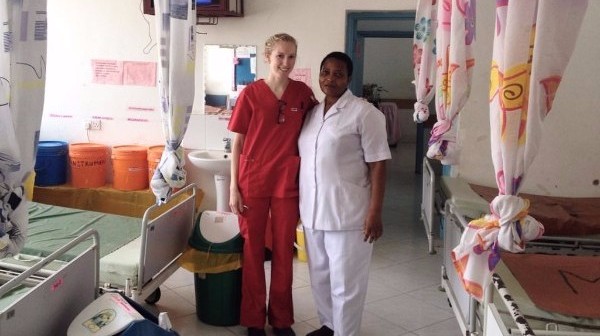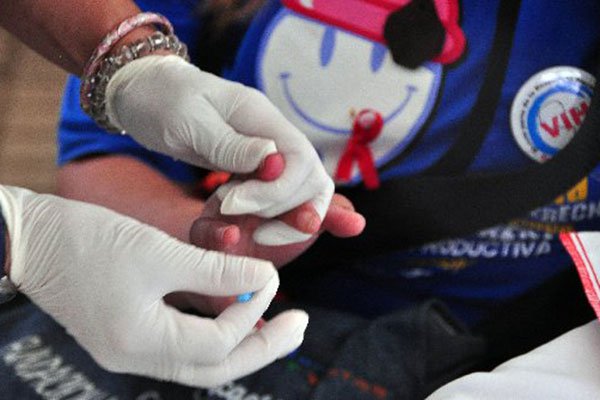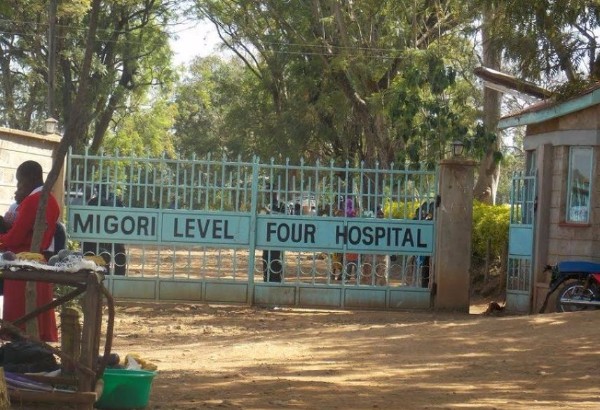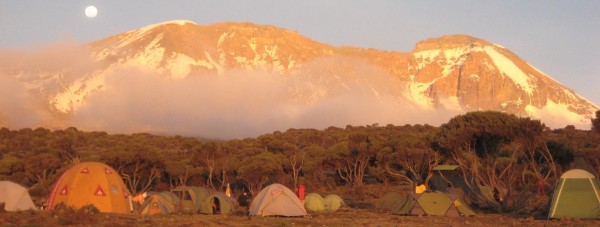 Visit Elective Africa website Visit Elective Africa website
|


|
|
|
| Happy Holidays! |
 |
|
It is the season of giving, sharing and celebrating. We are grateful for being our readers all through. While at it, take a trip and escape as adventure awaits you with Elective Africa from learning, discovering new culture to immersion in a different healthcare system. As we sum up the year we share stories by our participants of how transformative their healthcare placement abroad with Elective Africa was rewarding. We had students who have been on program with us before come for a repeat placement, how amazing is that! Having celebrated World Aids Day on 1st December, we take a close examination of the state of the epidemic in the sub-saharan Africa, capturing the most at risk population and the hurdles in prevention that continuous to heavily contribute to the mortality. Ever asked yourself what the components of planning a successful placement are, the steps to take and considerations to make? In our special focus we highlight the essential steps based on our experiences with students in planning a healthcare placement abroad. With a unique health system, every staff understands the constrains and the strengths of the health system. Some words from Fred Otieno, a Physiotherapist at Migori District Hospital, our rural placement location as he gives his perspective to the rural health system and the close look at the health systems organization. Back to top |
| A Sneak Peak |
 |
|
Over the years we have endeavored to deliver on unique healthcare internships and electives, in Kenya and Tanzania. We are passionate and focused on giving you the best experiences. In the words of our participants, here is a pick of some of these transformative placements with us. Heart wrenching, Exciting and Deeply Emotional As my second time volunteering with Elective Africa in an African Hospital, I thought I knew what to expect. My experience again was heart wrenching, exciting and deeply emotional as I helped the staff at Mt Meru Regional Hospital. The locals are incredibly brave, strong and never give up when faced with extreme challenges you would never know about. With the little resources in the hospital the staff work tirelessly for hours to do their best to help. From the fearless mothers in the labor ward to the families waiting patiently in the emergency department it had been a priceless experience that will further shape my career as a paramedic. I am again grateful for this opportunity, the sad times and the many happy adventures that went with it. Elective Africa, thank you, the staff are all amazing. Until next time I come back. Robyn Carter - Queensland Ambulance Service, Brisbane, Australia Amazing and Unforgettable The Elective Africa program has been a great learning opportunity to me in terms of hands on experience and knowledge wise. During my elective, I learnt about the management of diseases in an environment where resources are limited, death of patients is a common theme I encountered in the hospital. Learning to come to terms with these death is an essential skill that I have developed. Learning that medicine is not a cure but a treatment is important and that patients might die despite one's best efforts might be one of the most important takeaway message from this elective. Overall, I think the program is well structured and gives a good balance between work experience and tourism. The supervisors in the hospitals are willing to teach if I asked them relentlessly. The Nurses are especially friendly and will assist you in any procedures that you are not confident in performing. Ang Qi Kai - University of Tasmania, Australia A Rewarding Experience The stay in Arusha has been very rewarding and I have experienced so much. The accommodation and food was way above expected and everyone has been very helpful to us. We were met at the airport on time and everything ran smoothly on our way to where we were supposed to stay. During the time we were in Arusha we have been on a Safari, visited the orphanage, swam at the hot springs, been to Maasai market and visited the snake park. Our driver has been fantastic. We just had to say the time and place and he would drive us. The hospital is so different from what I am used to back in Norway. The equipment here is very limited and the patient rooms are so small. All in all I have had an experience of a life that I will never forget .I have heard an amazing time here in Arusha Bjørnar Kristoffersen - Medical University Bialystok, Poland Back to top |
| A Stepwise Guide to Planning a Successful Placement |
 |
|
Travel abroad is the new norm for young people. Many healthcare students are seeking elective placements abroad as they seek international health electives. Consequently pre-health students are also seeking hospital internships in developing countries to add on their resumes the global experience and interaction with new cultures. Thus deciding whether to take a trip abroad is important as it will open up your world view to different health systems as well as new cultural interactions. We have put together some steps based on our interactions with students on planning your placement. Deciding where to go, availability of funding, the duration of travel, experience expected are all factors one needs to take into consideration. Among the first steps in planning your trip will include deciding where to go. Destination choice may be influenced by other students who have visited the same destination or destination that are recommended by the school. Examine the course requirements A sit down with your advisor gives you a broad overview of your your course requirements placement objectives, whether it is for an elective or a pre-health internship. From the engagement with your advisor or elective coordinator, you also get clarify the duration and the timing of your placement abroad as well as the documents you will need to get ready for the approval of your placement if any. We assist the students in carrying out the approvals as risk assessment paperwork and providing preceptor documentations to support their specific placements as supervised by qualified health professionals. Read and research; find out what others have said This will involve listening to other students and your peers, reading testimonials and reaching out via email or call to get more information of experiences of studying abroad, the best way to maximize on an experience and what it is like to take a placement in your location of interest. Research also helps you note down your areas of interest and helps you fine tune your objectives. Broad reading also helps you decide on the kind of experience you want whether it is a placement at home in your country or a placement in a developing country with different diseases and unique learning conditions. Choose your destination Where do you want to take your placement? Which destination resonates with your objectives above and your desire for a different experience? Do you want to rotate in a large hospital with huge benefit of medical technology or a hospital in developing country with limited resources? Take a deeper look into your destination choice to find out more about its attractions too. Cant travel all the way and only do one thing, right? This may include adventures outside of the hospital placement such as safaris, a Kilimanjaro climb, a local hot springs hike etc. Our placement advisors are present to give you a glimpse of a placement in our destinations and specific requirements of each placement location. A placement in developing countries presents an opportunity to experience exotic conditions and get to offer a helping hand more thus enforcing your skills. Budget review and the associated costs Planning a trip abroad is an expensive venture. Planning and securing your elective or internship abroad early in advance helps to prepare the finances required for the trip abroad. Among the first steps in securing your funding, seek the advice from your school as to whether there are any grants allocated for your kind of study abroad trip. To ensure your success once you have made a choice of the destination get key contacts and reach out to them to clarify on costs. This may include using a placement organizer or even choosing to do it alone! Once you know your dates of travel, book your flight early to get the best deals. Other important costs will include accommodation, meals, local transportation and the adventure trips during your placement. You also need need to provide in the budget funds to buy local souvenirs for your friends and family back home and ofcourse for yourself and for your local entertainment. Cant be a trip of work and no play, right? Read broadly on the chosen destination You will for the time of the placement be attached to the health system. Reading ahead and research enables you to understand the most prevalent conditions in the area, ethics of medical practice in the areas as well as a snapshot of the treatment guidelines that you are likely to experience. This enables you to have targeted questions and learning areas during your placement. If at the end of the placement you will be required to write a report to your school for credit, reading ahead and research enables you craft a report detailed and conclusive. Engage the organizer of your placement abroad for pre-departure support and training, including the health and safety precaution to take in preparation and basically a note down on what else you need to know as you plan to travel. While on this stage, put together a check list of your travel items and they things that need to be done, such as vaccinations, visa requirements etc. We are developing further our own trip planner (MyElective) that will helps our students even plan better. Experience it Now you are on-ground, its time to experience your placement. During the time of placement, ensure you take into consideration the ethics and standards of practice.This is an important domain in the actual undertaking of a hospital placement. By understanding and upholding the ethical standards of the placement you learn and practice while ensuring that the patients are safe. Seek and always work under supervision as this ensures that you get to enhance your skills and be corrected in areas where you have limit of skills. Supervision also ensures you gain broad understanding into the non-clinical aspects of care delivery. Part of maximizing your experience is to communicate and be inquisitive always have a notebook with you to be able to capture the key skills gained the key lessons learnt this is a nice referral point for you in the future and may even help inform your future researches. And lastly but not least, hope you carried a camera for the trip because you will definitely want to capture these unique moments that you will be experiencing while in your placement destination. You could also blog about your trip and share with others as its agreat benefit to hear about a location from someone who has done it. We look forward to planning your next elective, medical volunteer program or internship placement with us. Back to top |
| A scan through HIV/AIDS a Top Killer Disease in the Sub-Saharan Africa |
 |
|
Fact File According to WHO
The Most at Risk populations for HIV/AIDS infections are: People who inject drugs For a long time, the use of injectable have been associated with increased risk of HIV infection. In the sub-Saharan Africa although there is a low surveillance on the People who inject drugs, the relatively of HIV infection among them is relatively low. In Kenya for example a report by NACCK shows that a higher number of people who inject drugs do not practice safe methods and usage of other HIV prevention measures such as condoms hence the high prevalence of HIV among them. Sex workers There is high risk of HIV infection of HIV AIDS among sex workers with prevalence being 20% compared to the 3.9% global prevalence. This groups of population constitute the population where the burden of the disease is most prevalent. Homosexuals In Kenya the rate of HIV/AIDS prevalence among men having sex with men is higher by almost three times that of the general population. Because homosexuality is considered illegal in most of the countries in this region, people who have this orientations thus shy away from seeking the health services and the necessary preventive and control measures hence the upsurge in the cases of HIV prevalence among them. Women Variation in education and access to the social support system makes the women and girls more susceptible to HIV AIDs(UNAIDS 2014, The Gap report). Lack of adequate information on the prevention and utilisation of the safety measures predisposes the women and places them at a higher risk. HIV is the leading cause of death of women in their reproductive age.
HIV Prevention in Sub- Saharan Africa HIV Aids prevention efforts in Sub Saharan Africa are geared towards:
Prevention interventions
Barriers to the prevention
Opportunities for learning presented by an elective with EA
Back to top |
| A Word With a Physical Therapist |
 |
|
Usually I would take a motorbike to reach Migori District Referral hospital. But today is different, at least am not visiting the place because I need medical attention but rather just to have a chat with one of the healthcare professionals . It had rained the previous day making the ground a little bit wet which didn’t bother me much. I finally get to the hospital and I have to wait for patients needs come first. After around 30 minutes of waiting, I finally get to talk to Fred who is a Physical Therapist at Migori District Hospital. Currently they are only 3 physical Therapist in Migori. On a daily basis he sees approximately 30 IN/OUT patients with movement disorders caused by illness, injuries, age related and many other causes. Here is my 2 minutes talk with Fred; For how long have you been in practice within this hospital? I have been in practice at Migori county referral hospital for 6 years. How would you describe the health system in Kenya briefly? The health system in Kenya is still lacking in that most rural and semi urban areas do not have adequate infrastructure: equipment and personnel even though we have from far. What in your practice and within this hospital is the biggest strength of the system? The biggest strength of the system is good cooperation between sector leaders, professionals and the clients What in your opinion is the three top challenges of the hospital and healthcare delivery within your region? I can say lack of diagnostic equipment, inadequate personnel and poor infrastructure leading to delay in seeking treatment. Are you familiar with internships or attachments within the hospital? I am very familiar with internship and attachment process and system in the hospital. What would be your number one advice to any student looking to intern at this hospital? My advice to anyone interested in taking attachment in this hospital is to be ready to meet all common illnesses, life style disease and also be ready to face challenges of poverty effect on seeking health care. What in your opinion is the key differentiator between Rural healthcare practice and Urban healthcare practice? The difference between rural and urban health care practice is awareness of preventive measures and poverty making the rural fox delay in seeking treatment and lack of modern technology/equipment and even highly trained personnel not willing to work in rural areas making it difficult for the rural population to get proper health care within reach Do you think herbs and traditional medicine should be incorporated to professional health services? Herbs and traditional medicine have no room in professional health care unless well researched and proven What is the one thing you wish you knew before joining healthcare profession? I wish I knew before joining health care procession is that treatment timely sought,rightly given saves life. Parting Shot Welcome to Migori county referral hospital, you will not be disappointed. Back to top |
| We can't describe it, you have to experience it |
 |
|
Elective Africa offers mountain climbing packages to the tallest mountain in Africa, Mt. Kilimanjaro. This is in addition to other safari packages to the numerous parks around Arusha Tanzania namely Serengeti, Ngorongoro, Tarangire and Lake Manyara. You have the option of joining a group or taking a private packaged safari and also can be undertaken as a group trek for students, schools and colleges.Visit our website to find out more Back to top |
|
|

 12 2016
12 2016